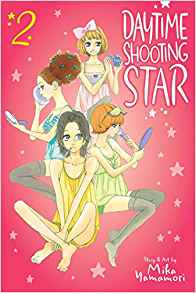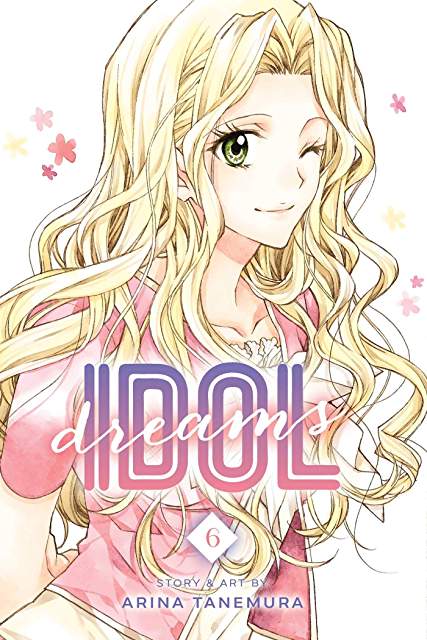Skip Beat! Volume 43 by Yoshiki Nakamura
It says something about the enduring appeal of Skip Beat! that even though I have stacks of shoujo to read, whenever a new volume comes out it is my immediate priority. Kyoko has fought through an intense audition process to win the role of Momiji, but as usual in Skip Beat! this means that the drama is just beginning.
Part of what made the most recent round of auditions so intense is that Kyoko and Moko had the possibility of working together. When Kyoko finds out that Moko isn’t cast, she has a torrent of emotions and anxiety about how her best friend might be feeling. It turns out that the producer has Moko in mind for a role in another project, and things get smoothed over. Kimiko does not accept losing the role of Momiji so gracefully, as she attempts to drug Kyoko and fling her off the roof of a building, only to be foiled by Erika putting a plan in motion to expose Kimiko’s insanity. This all seems like enough soap opera shenanigans for one volume of manga, but the story continues to unfold with Kyoko and Ren continuing to misunderstand each other, even though they’ve been able to acknowledge their feelings internally.
Kyoko’s quirkiness as a heroine is perfectly summed up when she calmly assesses her danger by concluding that she didn’t know how high up she was, and she probably would only have broken a couple of bones. There’s also a hilarious panel where Kyoko senses that Ren is looking at her and from her perspective his stare turns into the predatory glare of a snake, only for her to turn to look at him and be confronted by his usual pleasant expression. A innocuous picnic with a bento that Kyoko makes ends up turning into a prompt for some intense internal thoughts about budding romantic feelings. With the forced proximity element of Yashiro serving as manager to both Kyoko and Ren, I’m hoping that this story arc might move things forward a little bit. Then again, we are a good 43 volumes in to Skip Beat! and I’m entertained no matter what happens.





